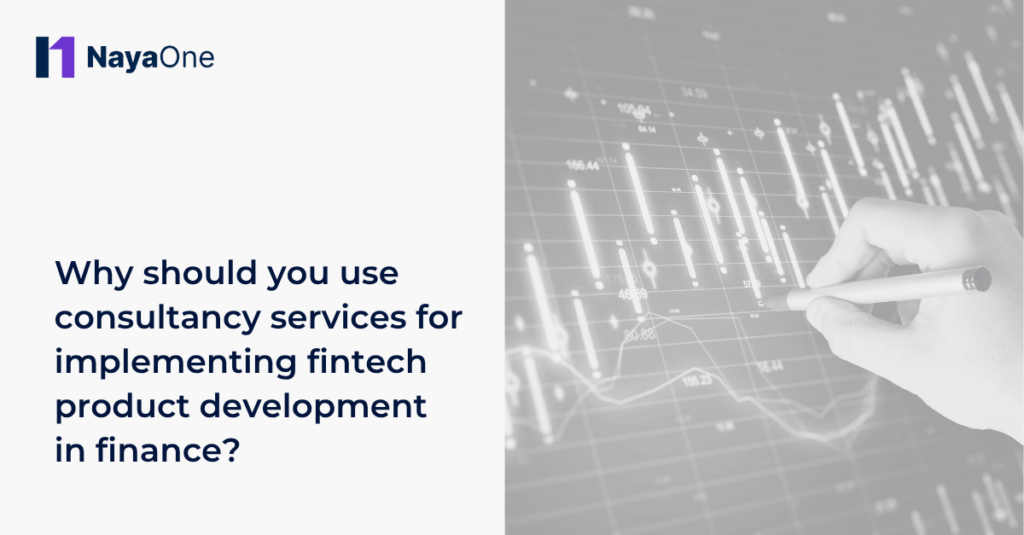When it comes to building products in finance, it is never just about the technology. It is about choosing the right combination of systems, integrating them smoothly, navigating the tangle of compliance requirements, and doing it all without derailing internal operations. That is a tall order for any team, even more so in finance, where the stakes tend to be high and the room for error is narrow.
According to a 2024 report from the European Central Bank, financial firms increased their IT-related outsourcing expenses from 6.8 % to 7.2 % of total administrative costs, driven by a growing reliance on external providers in areas like cloud and cybersecurity. That extra shift is a clear signal: when things get complex, firms lean on specialists.
So, what do you do when your product team is stretched, your devs are buried in tickets, and your roadmap includes features that require everything from secure APIs to data governance checks? You bring in the specialists. Not to replace your team, but to help them run smarter, not harder.
This is where consultancy services step in. And no, this is not the cliché story of “consultants to the rescue”. This is about recognising the value of targeted expertise when it comes to implementing fintech product development that is fit for financial environments, solutions that are not just flashy demos but practical, scalable, and results-driven.
Let’s dig into why this matters.
What challenges do financial institutions face when adopting fintech product development?
If only it were as simple as picking a platform off the shelf and clicking install. For most financial organisations, adopting new approaches to product development in fintech can feel like trying to upgrade the engine of a plane while it is flying.
Legacy systems are often the elephant in the room. Outdated but still mission critical, they cannot just be unplugged overnight. Then there is regulation. Any change, no matter how small, usually needs to be vetted for compliance, audited, and documented. And let’s not forget internal complexity, multiple departments, siloed data, and varying tech maturity levels across teams.
All of this adds friction. The result? Slower rollouts, higher costs, and frustrated teams who would rather spend time solving customer problems than battling configuration errors.
This is not to say financial teams cannot handle these things. They absolutely can. But handling everything in-house can burn time, and time is something no one has in surplus.
How can consultants tailor fintech product development to financial environments?
Think of consultants as navigators. They do not take the wheel from your team; they help plot the course more clearly.
A good consultant understands not just the tools but the terrain. In finance, that terrain is filled with unique challenges, tight data controls, privacy expectations, internal security standards, and performance benchmarks that leave little room for lag.
Consultants can help shape and implement fintech product development in a way that respects these boundaries. They know which features need to be prioritised, what integrations typically create friction, and how to design workflows that align with existing tech stacks.
They also bring with them lessons learned from other implementations. That knowledge becomes a shortcut; your team avoids mistakes others have already made, and you get to focus on outcomes rather than setup.
In what ways do consultancy services accelerate fintech product development?
Speed does not mean rushing. It means having clarity.
When it comes to innovation, time to market matters. But so does building something worth launching. Consultants can help strike that balance. They bring structured approaches, agile delivery, rapid prototyping, and phased rollouts that are grounded in industry best practices but adapted for your reality.
Instead of debating which technologies to use or spending weeks troubleshooting integrations, you are moving forward with guidance. That guidance can come in the form of hands-on implementation, technical training for internal teams, or even roadmap planning to ensure the product development underway can scale with future growth.
Another underrated benefit? External consultants can often spot opportunities that internal teams might miss, simply because they are not as close to the product. Sometimes all it takes is a fresh set of eyes to turn a good solution into a great one.
Are consultancy services cost-effective in the long run?
At first glance, consultancy services might seem like an extra line item on the budget. But consider what happens when you try to implement complex fintech product development without external support.
You might hit delays. Your internal teams might get stuck in endless rounds of trial and error. Rollouts could drag on, and once the solution is live, it may not even work as intended. Every one of those things has a cost, some visible, some not.
Now contrast that with a guided implementation. You avoid the early mistakes. Your team learns faster. You reach functional deployment sooner. And the outcome delivers value right away, rather than six months down the track.
That is not just cost saving. That is cost steering, directing your investment toward outcomes rather than effort.
It is also worth noting that good consultancy partners do not just install and vanish. They often equip internal teams to manage product development independently moving forward. So while the consultancy engagement might end, the benefits stick around.
What is the final takeaway for financial firms?
Building better products in finance is not just a question of capability. It is a question of focus.
You already have smart people in the room. You already know the goals you want to hit. What you may need is support in getting from point A to point B without taking unnecessary detours.
This is where digital transformation consulting plays a key role. It provides strategic direction that complements technical expertise. Consultancy services can make that journey smoother. They help ensure that the product development tools you choose are not just technically powerful but also strategically aligned with your organisation’s needs.
It is not about outsourcing the work. It is about making sure the work is structured, scalable, and smartly done. Because at the end of the day, the tools you use are only as good as the way you use them. And when the stakes are high, as they often are in finance, it makes sense to bring in people who can help you get it right the first time.





